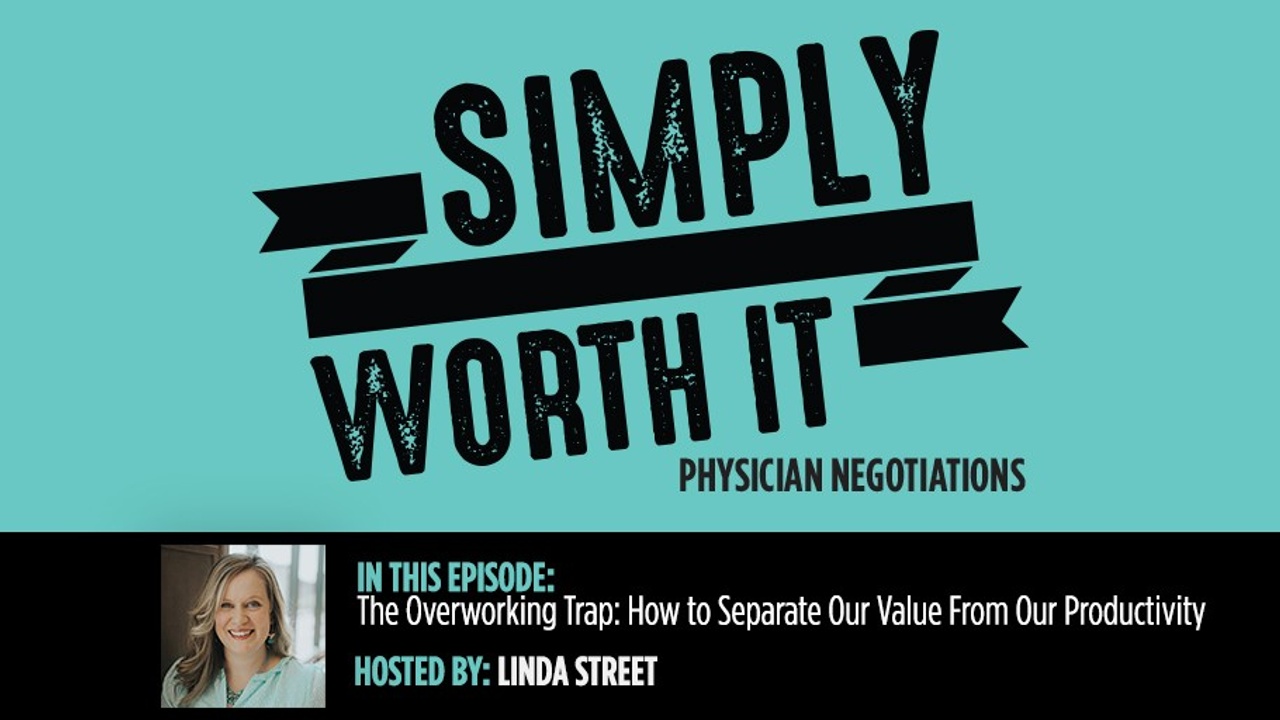The Overworking Trap: How to Separate Our Value From Our Productivity

Most high achievers were raised to believe that hard work will always get rewarded. This belief is untrue and harmful, and the root of the burnout and overworking culture in medicine.
We carry the belief that being tired all the time is the price we pay for success and excellence. We put ourselves under pressure to do it all, and work jobs that weren’t even designed with our wellbeing in mind.
Attaching our value to our productivity and overworking has tripled our risk of disease and mortality. For female physicians, making a change is literally a matter of life and death.
How do we challenge the thoughts we have around our value when it comes to productivity? What are some of the problems within our industry caused by the disparity between genders?
In this episode, I talk about the beliefs that drive overworking, why it doesn’t serve us, and how to build a healthier relationship with our productivity.
Three Things You’ll Learn In This Episode
- The health risks of overworking
Long hours for female physicians increase the risk of anxiety and depression, but the risk isn’t just to our mental health. Our risk of developing life-threatening diseases like heart disease or cancer triples when we work more than 60 hours a week. - Why female physicians are prone to overworking
For female physicians, it’s been deeply ingrained in us that being “helpers” and sacrificing our wellbeing for our productivity and jobs makes us more valuable. This is in part, driven by how we were all raised - to believe that hard work will always get rewarded and that we should always put others before ourselves. This is exacerbated by many jobs designed for the male physician of yesterday that don’t allow flexibility that could better serve female physicians of today. - How the medical industry can solve the physician overworking problem
We need to rethink the job structures in medicine, and make a push for a model that is customizable to the health and needs of different physicians. As we negotiate for positions that serve us, we need to prioritize our wellness, plan time for rest, and ask for work schedules that are more humane. Our goal as physicians is serving our patients, and we can do that better when we honor ourselves first.


